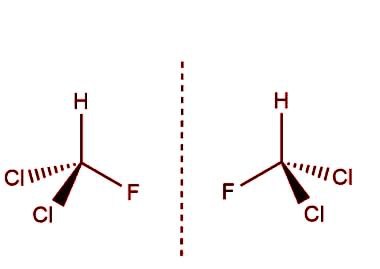Boyle’s Law
Boyle's Law is a fundamental gas law that describes the relationship between the pressure and volume of a gas at a constant temperature.
Definition of Boyle’s Law
Boyle's Law states that, at a constant temperature, the pressure of a gas is inversely proportional to its volume. In simpler terms, as the volume of a gas decreases, the pressure of the gas increases, and vice versa, as long as the temperature and the quantity of gas are kept constant.
Explanation of Boyle’s Law
Boyle's Law can be derived from the kinetic theory of gases, assuming a perfect (ideal) gas. Real gases obey Boyle's Law at sufficiently low pressures, although the product PV generally decreases slightly at higher pressures, where the gas begins to depart from ideal behavior.
Importance of Boyle’s Law
Boyle's Law is important because it helps explain how gases behave. It is also a fundamental concept in the study of thermodynamics and plays a significant role in various scientific and industrial applications.
Applications of Boyle’s Law
Boyle's Law has many practical applications. It is used in the following areas:
- Medical syringes: Medical syringes use Boyle's Law to draw liquids and gases into the syringe.
- Inflating tires: When inflating tires, Boyle's Law is used to calculate the appropriate pressure required to achieve the desired volume of the gas.
- Paint sprays or aerosol sprays: The pressure inside a can of paint or aerosol spray follows Boyle's Law.
- Breathing of humans and animals: Boyle's Law is involved in the process of inhaling and exhaling air.
- Packing of soda bottles: The carbon dioxide gas in soda bottles is kept under pressure to dissolve in the liquid, and Boyle's Law is used to determine the appropriate pressure for the gas.
- Scuba diving: Boyle's Law is crucial in determining the amount of air a scuba diver needs to take underwater and how long they can stay submerged.
- Air pump: Air pumps use Boyle's Law to compress air and increase its pressure.
- Storage of gases: Boyle's Law is used to determine the pressure required to store gases in containers.
Frequently Asked Questions – FAQs
Here are ten frequently asked questions about Boyle's Law:
⇒ Who discovered Boyle's Law?
Robert Boyle, an English scientist, discovered Boyle's Law in the mid-1600s.
⇒ What is the formula for Boyle's Law?
The formula for Boyle's Law is PV = k, where P is pressure, V is volume, and k is a constant.
⇒ What is the significance of Boyle's Law?
Boyle's Law is significant because it helps scientists and engineers understand how gases behave under different conditions and how they can be used in various applications.
⇒ How does Boyle's Law relate to scuba diving?
Boyle's Law is related to scuba diving because it helps explain how changes in pressure can affect the volume of a gas in a scuba tank and the body of a diver.
⇒ Can Boyle's Law be used to describe the behavior of all gases?
Boyle's Law is applicable only to ideal gases, but real gases obey Boyle's Law at sufficiently low pressures.
⇒ What is the difference between Boyle's Law and Charles's Law?
Boyle's Law describes the relationship between the volume and pressure of a gas, while Charles's Law describes the relationship between the volume and temperature of a gas.
⇒ How is Boyle's Law used in medical equipment?
Boyle's Law is used in medical equipment such as anesthesia machines and ventilators to control the flow and pressure of gases in the respiratory system of patients.
⇒ What are the limitations of Boyle's Law?
Boyle's Law is only applicable to ideal gases and doesn't take into account other factors such as temperature and the amount of gas present.
⇒ How does Boyle's Law apply to tire pressure?
Boyle's Law applies to tire pressure because it explains how the volume of air in a tire changes as the pressure changes. As the pressure increases, the volume of air in the tire decreases, and vice versa.
⇒ Does Boyle's Law apply to liquids and solids as well as gases?
No, Boyle's Law applies only to gases. Liquids and solids have much less compressibility and do not exhibit the same dependence of pressure on volume.
Let me know if you have more questions or if there is a specific topic that you would like to know more about.





If you have any doubts, please let me know